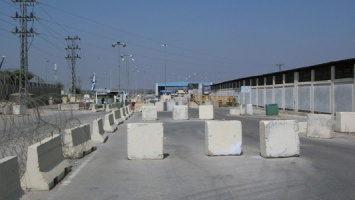- About
- News
-
Advocacy
- Accountability & Litigation
- International Advocacy
- National Advocacy
- Documentation
- FAI Unit
- Al-Haq Publications
- Library


- About
- News
-
Advocacy
- Accountability & Litigation
- International Advocacy
- National Advocacy
- Documentation
- FAI Unit
- Al-Haq Publications
- Library

Since the 2007 blockade of the Gaza Strip, the Israeli authorities have prevented many Palestinians with urgent medical needs from receiving medical treatment in the West Bank and Israel, for alleged security reasons. The Israeli authorities often impose onerous conditions on Palestinians who seek permits to access medical treatment, such as delays or demands that alternative travel companions accompany patients, which hinders their access to hospitals outside the Gaza Strip.
In this way, the Eretz border crossing regime prevents Palestinians in Gaza from leaving the territory, despite having obtained permits from the Israeli Authorities to enter Israel or the West Bank for medical purposes. At the Eretz crossing, Israeli forces often interrogate, beat, and arrest Palestinians for no evident reason. In 2013, Al-Haq documented the cases of eight Palestinians, who were arrested at the Eretz crossing by the Israeli Intelligence Agency, while they were leaving the Gaza Strip for medical purposes.
Deeba Youssef Rihan –Jabaliya – Gaza
Deeba, 68, was diagnosed with acute arthritis, which limits her ability to walk and requires surgery in her right knee. The surgical procedure is unavailable in the Gaza Strip, as the hospitals there do not have the requisite medical equipment, due to the Israeli military blockade. Instead, Deeba was referred to Al-Makassed Hospital in Jerusalem. For that reason, Deeba applied through the Palestinian Liaison office to obtain a permit for herself and her son, Nu’man, 41, her travel companion.
On 15 October, at approximately 6:30 am, Deeba received a phone call from the Coordination Office of the Health Ministry requesting that they both go to the Eretz crossing. At the crossing, they discovered that the Palestinian Liaison Office was closed for the Eid Holidays, so they returned home. Later, at 9:00 am, Deeba received another phone call from the Coordination Office, confirming that she and Nu'man had been authorised to travel through the Eretz crossing to Jerusalem.
Deeba and Nu’man rushed to the Eretz crossing and arrived there within half an hour. Once at the Israeli side of the crossing, they were both body-searched and told to wait in a waiting room. Fifteen minutes later, a security official approached Nu’man and questioned him about his father and brother, Iyad. Nu’man was then taken into another room in the same building.
Approximately one hour later, Deeba was still waiting for her son at the Eretz crossing, when a soldier approached her. He gave Deeba her ID and ordered her to return to Gaza immediately. When Deeba enquired about her son Nu'man, the soldier responded in Arabic "No son. Go home." At this point, Deeba broke down crying and screaming. She demanded to see her son and refused to leave the crossing without him. A military intelligence officer approached Deeba and spoke to her husband on the phone. He informed her husband that Nu’man had been arrested by the Israeli Intelligence and would be subsequently transferred to Majdal Prison. The officer demanded that someone come and collect Deeba from the Eretz crossing.
No reason was offered for Nu'man’s arrest. According to Deeba, the family have not received any news about Nu’man since his arrest. Nu’man is father to six children. (Al-Haq Affidavit 9053/2013)
Al-Haq condemns the arbitrary arrest and detention by the Israeli authorities of Palestinians crossing at the Eretz border and calls upon Israel to immediately halt this practice. Furthermore, Al Haq calls on Israel to end its blockade of the Gaza Strip, which effectively constitutes a form of collective punishment of the entire civilian population, in violation of international humanitarian law. In addition, Israel is required to respect its international law obligations, including the right of protected persons to receive medical attention and hospital treatment under international humanitarian law and the right to the highest attainable standard of physical and mental health under international human rights law.
